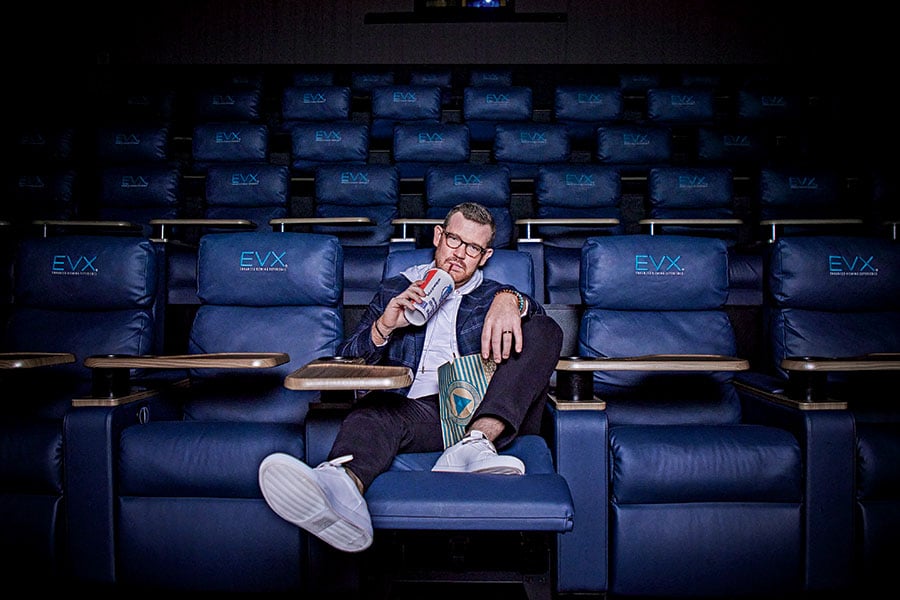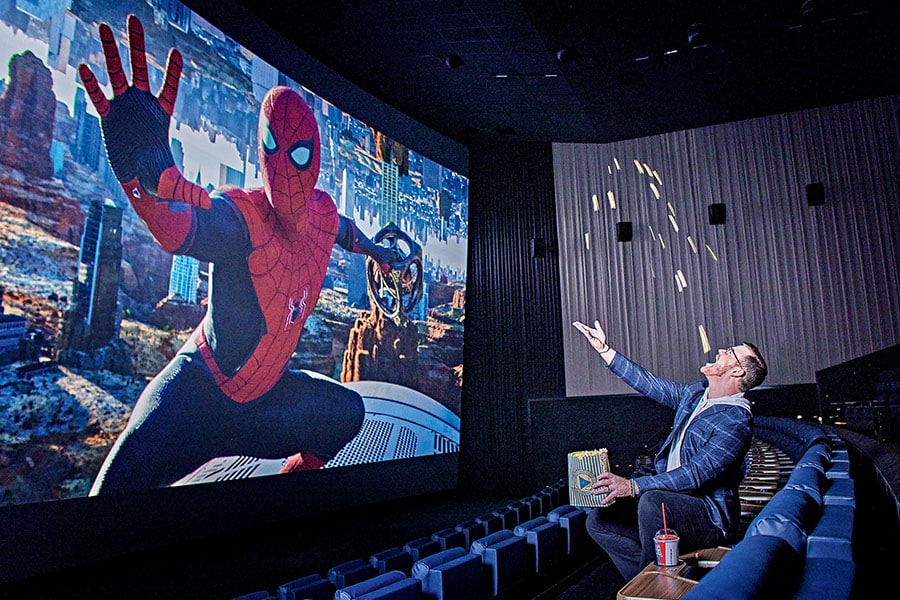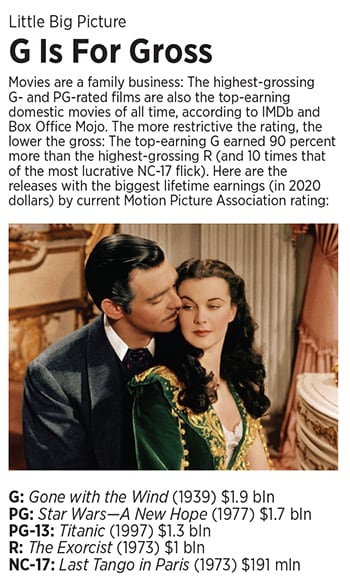
Last two years were horrific for the movie theatre business—unless you're Mitch Roberts
While most movie theatres remained shut during the pandemic, the 27-year-old entrepreneur doubled down on his vision: transforming a mundane trip to the movies into a memorable event with bowling, arcade games, laser tag, food and booze
 Mitch Roberts at his Schertz, Texas, multiplex, where servers deliver high-margin comfort food directly to your seat
Image: Aaron Kotowski for Forbes
Mitch Roberts at his Schertz, Texas, multiplex, where servers deliver high-margin comfort food directly to your seat
Image: Aaron Kotowski for Forbes
When Texas Governor Greg Abbott allowed the state’s Covid-shuttered movie theatres to reopen at 25 percent capacity on May 1, 2020, most operators took a pass. Never mind the possibility of hosting a superspreader. With no new releases and few patrons, the economics just didn’t make sense. Mitch Roberts disagreed. Only 25 years old, he had built Austin-based Evo Entertainment up to six sites in Texas with 57 screens, 38 bowling alleys, full meal service, 200 arcade games—and a hefty $42 million in debt. When his operations had to close six weeks earlier, he says, “My initial reaction was fear. My immediate second reaction was, let’s get ready for reopening.”
Roberts began showing cult classics like Grease and The Goonies to sparse indoor crowds and rented out idle auditoriums to gamers who wanted to play Fortnite on a 65-foot screen. He improvised new revenue streams: Painting the exterior of two multiplexes white to serve as drive-in screens, turning nine acres of cow pasture into paintball courses and packaging gallon jugs of margaritas and at-home movie night snack kits for pickup and delivery. While many competitors remained shut, he generated buzz with a summer drive-in film festival and a faux pumpkin patch offering horror flicks and Halloween milkshakes, both spiked and alcohol-free. “[Others] took the batten-down-the-hatches approach,” he says. “We took the remind-people-there’s-a-place-for-you-here approach.”
Nevertheless, Evo’s revenues fell 60 percent to just $20 million in 2020. Roberts stayed afloat only due to temporary forbearance from his bank and then $21 million from the federal government from a fund specifically earmarked for shuttered entertainment venues. “An absolute miracle,’’ he says. Between Roberts’ hustling and Texas’s earlier relaxing of Covid restrictions, Evo crawled back far faster than many of its cinema peers. In 2021, sales were just 15 percent lower than in 2019, and by the second quarter, the operation turned profitable again. Roberts owns 60 percent of Evo, his two sisters the rest.
As the pandemic has dragged on, a handful of chains announced permanent closings while others, such as Austin-based Alamo Drafthouse (which pioneered serving booze to moviegoers a quarter-century ago) reorganised in bankruptcy. But Roberts went into expansion mode, scooping up four darkened Texas facilities, including Southlake Town Square in Dallas, which he is now turning into a flagship with seven dine-in theatres, heated recliners, laser tag, bumper cars, minigolf and an indoor ropes course.
To bankroll $30 million in renovations on those four properties and fund further expansion without adding to his $40 million in bank debt, Roberts has enlisted Bryan Sheffield, a 43-year-old centimillionaire. “I thought he was crazy at first,” admits Sheffield, a third-generation oilman. But after months of discussions, he concluded Roberts was onto something—the “crowd business” would survive not only Covid but also streaming and cheap 65-inch TVs. “We live in an experience economy. People crave experiences. They want to get together,’’ declares Roberts, a member of this year’s Forbes 30 Under 30 class. Under their deal, Sheffield’s family office has committed up to $125 million to renovate and buy properties. Evo will get a management fee of around 2.5 percent of revenues on Sheffield-funded properties and, if they clear profitability hurdles, some equity too.









